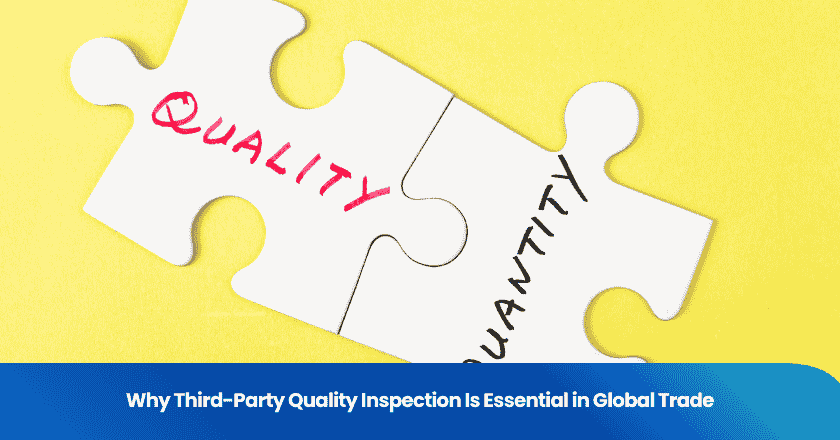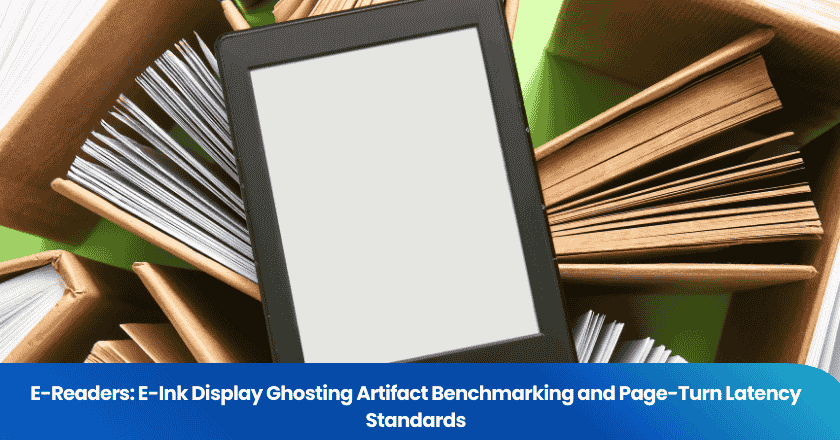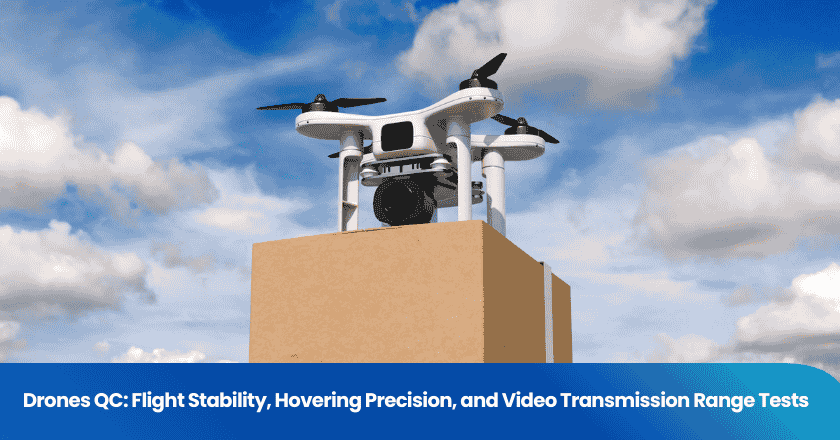
You face constant pressure to maintain high standards across global supply chains. Third-party inspections offer you a reliable way to protect your business interests. Quality inspection companies help you ensure compliance, reduce risks, and safeguard your reputation.
- These inspections confirm your products meet regulatory requirements, allowing smoother market access.
- Certification reports from trusted agencies strengthen your position in international trade.
- Early risk identification prevents costly legal issues and preserves your brand image.
Key Takeaways
- Third-party inspections provide unbiased evaluations, ensuring product quality and compliance across global supply chains.
- Early detection of defects through inspections helps prevent costly recalls and protects your brand's reputation.
- Investing in quality inspections enhances your market position by building trust with customers and partners.
- Regular inspections ensure adherence to international regulations, reducing the risk of shipment delays and legal issues.
- Choosing the right inspection partner is crucial; look for industry certifications and proven experience to ensure quality.
Third-Party Inspections Overview
What Are Third-Party Inspections
You rely on third-party inspections to maintain high standards in global supply chains. These inspections involve independent organizations that assess your products, processes, or shipments. Unlike first-party audits, which your own team conducts, or second-party audits, which your customers perform, third-party inspections offer unbiased evaluations. You gain objective results because these inspectors have no stake in your business outcomes.
Third-party inspections play a vital role in verifying product quality, safety, and compliance before goods reach international markets. You can choose from several common types of inspections to suit your needs:
- First Article Inspection (FAI)
- Initial Production Check (IPC)
- During Production Check (DUPRO/DPI)
- Final Random Inspection (FRI)
- Pre-Shipment Inspection (PSI)
- Container Loading Check (CLC)
- Container Loading Inspection (CLI)
- Container Loading Supervision (CLS)
These inspection types help you catch defects early, monitor production, and ensure your shipments meet expectations.
How Quality Inspection Companies Operate
Quality inspection companies follow a structured process to deliver reliable results. You start by defining the scope and criteria for each inspection. Inspectors then evaluate your products using established methods and tools. They document findings in detailed reports and provide feedback for improvement.
| Step | Description |
|---|---|
| Preparation | Define the scope, set inspection criteria, select methods and tools, and establish sampling plans. |
| Execution | Systematically evaluate products, categorize defects, and verify compliance with criteria. |
| Documentation | Generate structured reports, utilize digital tools for real-time reporting, and ensure accountability. |
| Follow-up | Monitor regularly, analyze data for trends, and integrate feedback for continuous improvement. |
You benefit from transparent reporting and actionable insights. Most third-party inspections in China cost between $149 and $320 per inspector per day, with each inspection lasting 6 to 8 hours. This investment helps you avoid costly mistakes and maintain your reputation in global trade.
Importance in Global Supply Chains
Unbiased Quality Control
You need consistent quality control across all your suppliers, especially when managing global supply chains. Third-party inspections provide independent assessments, free from internal bias. This objectivity ensures that every batch meets your quality assurance standards, regardless of where it originates.
- Independent inspectors verify quality without influence from your internal teams or suppliers.
- Early detection of defects prevents costly issues and ensures only compliant products reach your customers.
- Consistent standards across suppliers help you maintain a reliable reputation in international markets.
- Third-party inspections motivate suppliers to uphold quality control, fostering accountability and trust.
When you rely on impartial evaluations, you strengthen your quality assurance process and build healthier relationships with your suppliers.
Regulatory Compliance
Navigating international regulations can be complex. Third-party inspections help you meet the requirements of different markets by verifying compliance with safety, labeling, and documentation standards. This process reduces the risk of shipment delays or rejections at customs.
| Type of Audit | Description |
|---|---|
| Compliance Audits | Ensure your business meets relevant regulations and standards, such as ISO certifications. |
| Performance Audits | Assess the effectiveness of your quality management systems and processes. |
| Supplier Audits | Evaluate whether your suppliers meet your quality control expectations. |
You benefit from unbiased evaluations that confirm adherence to both local and international standards. Advanced inspection techniques, including digital tools and AI, further enhance accuracy and efficiency. This approach helps you avoid penalties and ensures smooth entry into global markets.
Risk Reduction
You face many risks in global trade, from defective products to unreliable suppliers. Third-party inspections play a critical role in risk reduction by identifying potential issues before they escalate. These inspections help you avoid costly recalls, legal disputes, and damage to your reputation.
You gain peace of mind knowing that your supply chain remains resilient and your products consistently meet expectations.
Fraud Prevention
Fraud can undermine your entire supply chain. Third-party inspections introduce transparency and accountability, making it harder for unethical practices to go unnoticed. Inspectors verify documentation, check for compliance, and ensure that suppliers follow ethical standards.
- Independent evaluations validate security and compliance.
- Assessments remain free from internal influences, providing objective insights.
- Transparent reporting builds stakeholder confidence and deters fraudulent activity.
Transparency not only protects your business but also attracts investors and strengthens your market position. Reliable quality control and documentation help you avoid negative publicity and maintain consumer trust.
Benefits for Businesses
Cost Savings
You face constant pressure to control costs in global trade. Quality inspection companies help you achieve significant savings by identifying issues early in the production process. When inspectors catch flaws before manufacturing begins, you avoid waste and reduce expensive rework. Early detection also prevents costly defects and product recalls, which can disrupt your supply chain and damage your bottom line.
- Early identification of production issues prevents expensive recalls.
- Catching flaws before manufacturing reduces waste and avoids rework costs.
- High-quality products minimize customer complaints and returns, protecting your brand.
Quality inspection companies provide you with detailed reports and actionable insights. These services allow you to make informed decisions and allocate resources more efficiently. You benefit from fewer disruptions and lower operational expenses.
Enhanced Reputation
Your reputation in international markets depends on consistent product quality and ethical business practices. Quality inspection companies play a vital role in building trust with your partners and customers. When you use independent inspections, you demonstrate your commitment to transparency and accountability.
- Actions of third-party vendors can affect your organization's reputation.
- Issues such as bad press or cybersecurity breaches can diminish trust among potential clients.
- Partnering with inspection experts signals reliability and professionalism.
Case studies show that businesses partnering with quality inspection companies experience stronger market reputations. For example, a textile and apparel trading company improved product quality and customer satisfaction after implementing a customized inspection plan. This approach led to increased confidence among buyers and a more competitive position in the market.
Consistent quality assurance services help you avoid negative publicity and maintain long-term relationships with stakeholders.
Improved Product Quality
You need to deliver products that meet international standards and customer expectations. Quality inspection companies combine technology and human expertise to detect both visible and subtle defects. This approach leads to dramatic improvements in product quality and delivery times.
- Technology and human oversight detect visible and subtle defects.
- Product quality and delivery times improve significantly.
- Customer complaints decrease, restoring trust in your brand.
A recent FDA report showed that increasing inspections resulted in a 26% drop in drug product recalls. This data highlights the measurable impact of thorough inspections on product quality.
Quality inspection companies also enhance traceability and reduce shrinkage in your supply chain. Accurate labeling ensures products are uniquely identifiable and audit-ready. Real-time monitoring allows you to track inventory status, reducing mix-ups and shrinkage. Compliance frameworks support transparency and build customer trust.
Precise batch and location data confine recall scope, lowering costs associated with disposal and logistics. Real-time status labels and automated FIFO rules further minimize inventory errors.
Quality inspection companies help you maintain high standards, improve traceability, and reduce losses throughout your supply chain.
Overcoming Challenges
Choosing Inspection Partners
You face many decisions when selecting a third-party inspection partner. The right choice ensures your safety and compliance checks meet global expectations. You should evaluate each provider using clear criteria.
The table below highlights essential factors:
| Criteria | Description |
|---|---|
| Industry Certifications | Look for partners recognized by bodies like API, ISO, ASNT, and NEBOSH. |
| Past Project Reviews | Choose providers with relevant experience in your industry and region. |
| Digital Tools | Ensure they offer modern tools like cloud-based reports and real-time monitoring. |
| Local Availability | A local presence ensures faster deployment and better understanding of local regulations. |
You must also address common challenges. Accreditation, competency, credibility, cost efficiency, and availability all impact your decision. Delays in inspections can increase carrying costs and disrupt your supply chain. Fluctuations in product prices and risks to trade crew availability further complicate the process. Recent staffing shortages and increased production have made timely inspections even more critical.
Adapting to Change
Global trade regulations shift rapidly. You need inspection partners who adapt quickly to new compliance standards. Internal audits help you navigate changes in tariff policies and third-party requirements. Proactive adaptation supports risk mitigation and keeps your business competitive. Companies now leverage AI-driven tools and blockchain to enhance transparency in safety and compliance checks. Staying ahead of regulatory trends ensures your long-term success.
Embracing compliance as a strategic advantage fosters innovation and trust with your partners.
Communication Strategies
Clear communication with inspection providers is vital for effective risk mitigation. Poor communication can derail even the best safety and compliance checks. You should maintain open and ongoing dialogue to clarify expectations and address potential risks. Streamlining responses to security questionnaires reduces confusion and errors. A collaborative approach strengthens your compliance standards and builds trust. Strong relationships based on transparency support long-term partnerships.
Open communication ensures your supply chain remains resilient and your compliance standards stay robust.
Third-party inspections play a vital role in your global supply chain strategy. You gain long-term benefits such as improved product quality, enhanced customer trust, and reduced risk of costly recalls.
- Ensure compliance with international standards and safety requirements
- Build transparency and trust with unbiased assessments
- Strengthen risk management and operational integrity
- Support sustainability by verifying ethical and safety practices
Investing in third-party inspections positions your business for sustainable growth and resilience in global trade.
FAQ
What is the main purpose of third-party quality inspection?
You use third-party inspections to ensure your products meet quality and safety standards before shipping. This process helps you avoid costly mistakes and builds trust with your customers.
How do you choose a reliable inspection company?
You should check for industry certifications, proven experience, and strong local presence. Reliable companies provide clear reports and use modern digital tools for transparency.
When should you schedule a third-party inspection?
You schedule inspections at key stages: before production, during production, and before shipment. Early checks help you catch problems and maintain consistent quality.
Can third-party inspections help you meet international regulations?
Yes. You rely on third-party inspections to verify compliance with different countries’ regulations. This step reduces the risk of customs delays and legal issues.
What are the typical costs involved in third-party inspections?
You usually pay a daily rate per inspector. Costs depend on location, inspection type, and complexity. Investing in inspections saves you money by preventing defects and recalls.
Grow your business with TradeAider Service
Click the button below to directly enter the TradeAider Service System. The simple steps from booking and payment to receiving reports are easy to operate.





